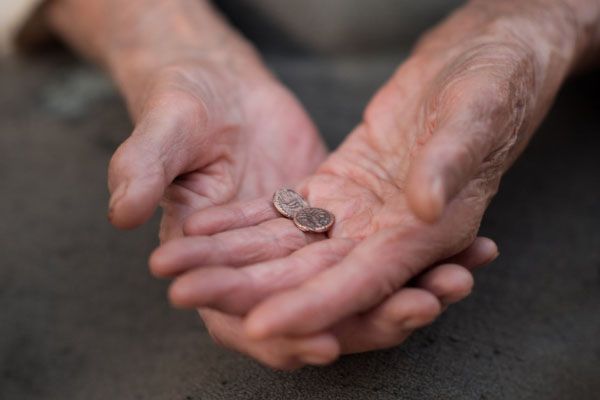Tithing: Making Up the Difference
March 16, 2018 • Blog Post

You’ve been working hard at your job and have finally received your paycheck. It can be hard to think about giving some of that money in tithing. Instead of hesitantly or grudgingly paying our ten percent, how can we allow this process to sanctify us? In this post, we’ve pulled some principles of tithing from the BYU Speeches archive to help us remember why we pay our ten percent.
Money is not an eternal currency.
“Though money is important, we must view its purpose with an eternal perspective. Money is meant to be a means for serving our families and our God. When consecrated to that purpose, it is of great worth. However, when money becomes an end unto itself, it derails us from our eternal purposes. When we focus too much of our time, talents, and energy on making money, we sin. The apostle Paul taught that ‘the love of money is the root of all evil’ (1 Timothy 6:10; emphasis added).”
—E. Jeffrey Hill, “Money Matters: Living Joyfully within Your Means,” 9 June 2015
Remember that tithing is of God.
“The fact is that tithing is the Lord’s law of finance. It came of revelation from him. It is a divine law with a great and beautiful promise. It is applicable to every member of the Church who has income. It is applicable to the widow in her poverty as well as to the wealthy man in his riches. It is simple of understanding. One need only compare it with the income tax to recognize the simplicity that comes of the wisdom of God in contrast with the complexity that comes of the wisdom of men.”
—Gordon B. Hinckley, “The Widow’s Mite,” 17 September 1985
Paying tithing requires faith, not just money.
“Someone once observed, ‘It doesn’t take money to pay tithing; it takes faith.’ . . . The main purpose of tithing is not to build hundreds of buildings all over this world this year. The main reason for the payment of tithing is what happens inside the individual—what happens as the soul is sanctified, what happens as the blessings of heaven unfold upon one as those windows are opened wide.”
—Robert L. Simpson, “Tithing: A Law of Peace and Security,” 2 December 1979
When we sacrifice our money, God blesses us in other ways.
“Someone has observed that true worship is really not possible without sacrifice. Had you ever thought about that? . . . I want to promise you that your lives will be blessed and that the peace of heaven will be yours, even that peace spoken of by the Savior when he said, “Peace I leave with you, my peace I give unto you: not as the world giveth, give I unto you” (John 14:27). Security will also be yours; and if there are two things that this world wants today, they are peace and security.”
—Robert L. Simpson, “Tithing: A Law of Peace and Security,” 2 December 1979
God plays a significant role in our finances if we let Him.
“It does not seem logical that if I pay my tithing I can really do more with only 90 percent of my income. But that’s because part of the equation is missing. It isn’t really that I can do more with 90 percent than 100 percent. Rather, it is that 90 percent plus the Lord’s blessings equals more than 100 percent. It is so with all things in life for those who recognize their dependence on the Lord and put Him first in their lives and trust Him to fulfill His scriptural promises.”
—C. Raymond Smith, “Depending on the Lord: Gospel Insights from a Musician,” 23 June 2009



